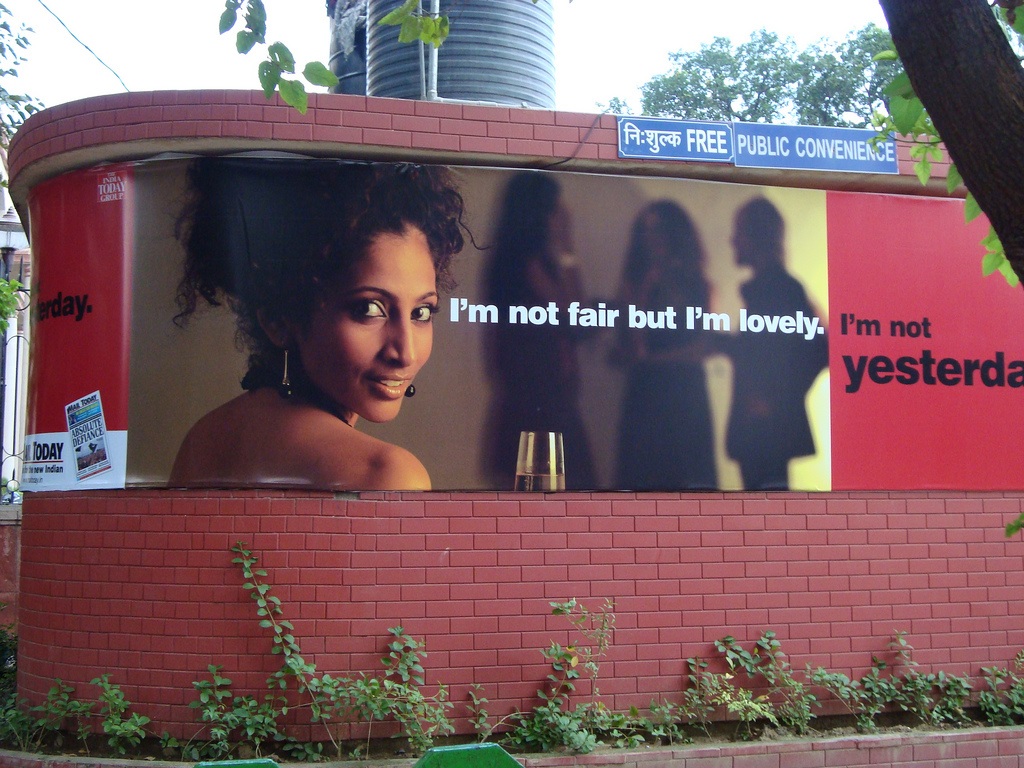Tum khali ho jaogi, a Hindi phrase that roughly translates to “You’ll turn dark”, and something I heard often as a child. Every time I wanted to play outside, my family would remind me to cover myself with long sleeves and pants because, “No one will want to marry a dark woman”.
As a child who was born in India and raised in the United States, I was not exposed to the booming skin-bleaching industry. However at 9 years old, my Indian born-and-bread cousin found herself reaching for “Fair and Lovely”, a staple in the Indian fairness cream industry worth over $450 million.
Fairness was epitome of royalty and became a fashion in south asian countries after the colonization of the British Empire. Throughout medieval history, the Indian subcontinent had been on the radar of the Europeans including the Portuguese, French and Dutch. The subcontinent was invaded and ruled by the Mughals in the 16th century, and then the British from the 17th Century. All of these “visitors” had a fair complexion and claimed their superiority. The conclusion was that to be valuable you had to be fair toned, and soon the new fad developed into a deep-rooted obsession in south asian society.
In the United States, terms such as ‘white privilege” and “all lives matter” are used to portray racial discrimination deeply rooted in our history and the effect it has on today’s society. Yet when most people think about Asian-Americans, they think of Asians with a lighter complexion- those from countries like China, Korea and Japan. Merriam-Webster defines the word ‘Asian’ as “of, relating to, or characteristic of the continent of Asia or its people.” That includes the whole continent of Asia, not just a certain region. This common stereotype is not just an issue in the United States, but a worldwide misconception.
Recently in Hollywood, we have been seeing increased representation in the Asian community with movies such as Crazy Rich Asians, which has an all east Asian cast, and the To All the Boys I’ve Loved Before, whose main actress Lana Condor, is a Vietnamese native. Besides the obvious, both of these movies have one thing in common; the use of light-skinned Asians. The sad truth is that dark-skinned Asians have been left out of Asian cinema, and cinema around the world for decades.
I grew up watching Bollywood movies, and although most of the actors were south Asian, they had all undergone extensive skin bleaching to the point where they were unrecognizable. The lack of representation of dark-skinned beauty has had catastrophic effects on the self-esteem of millions of young and impressionable Indian girls.
Although the release of Crazy Rich Asians and To All the Boys I’ve Loved Before is a momentous step in the right direction for Asian American representation in Hollywood, the cast is predominantly light-skinned east Asians. In Crazy Rich Asians, one spots few darker skinned Asians in media, and unfortunately, they play derogatory roles of maids and chauffeurs. This shouldn’t be the case. Brown and dark-skinned Asians are usually overlooked in the Asian-American label. Asia is the largest continent on the planet, and shelters approximately 4.5 billion people from all walks of life. Regardless, people think of very few Asian groups when they hear the utterance of the words “Asian-American”.
In March 2016, the hashtag #UnfairandLovely, which is a rebuttal to infamous skin bleaching company Fair and Lovely, flourished across social media platforms. Dark-skinned South Asian women from around the world quickly started to identify with the phrase. The campaign sheds light on impractical beauty standards regarding skin tone, and hopes to “engage and empower a more representative demographic by seeking to promote, protect and inspire all dark-skinned women and femmes,”
Unlike some of my fellow Asian-American sisters, I grew up raised in a household that grew out of the deep rooted obsession of skin bleaching. My mother had always been against the concept of skin bleaching, as was her mother before her. As I matured, I realized that my skin color doesn’t define my future and what I have to offer.
The Asian-American representation in Hollywood that we see in today’s cinema is long overdue, but I, like many others, want to see more. I want to destroy the stereotype that makes all Asians smart and wealthy. I want to see dark-skinned asians acquiring lead roles in blockbuster films. Most of all, I want to see women all over the world be love their skin color unconditionally and not let anyone convince them otherwise.

Leave a Reply